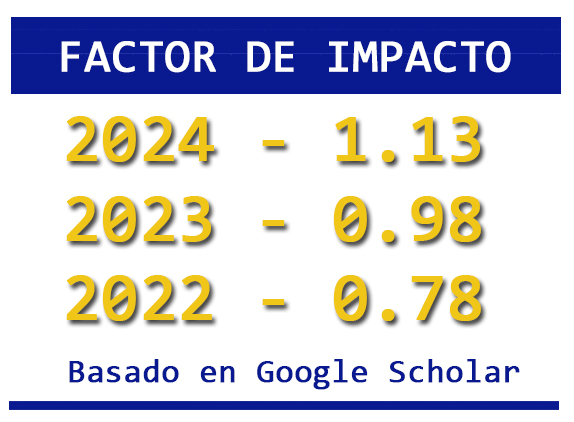Application of Fuzzy Logic in projects
DOI:
https://doi.org/10.36790/epistemus.v12i25.78Keywords:
project management, fuzzy indexes, decision making by consensus, project risks, hierarchical methodsAbstract
This work was proposed to provide a methodological guide to use the techniques of fuzzy logic in project management. First, the basic notions on which the required fuzzy logic is based were introduced. Three aspects were focused on the management of projects, where it is possible to apply Fuzzy Logic to evaluate with more objectivity its significance and scope: the management of indexes that justify the rationality of the investment, so that economic benefits can be measured; the determination of a hierarchy of risks with a view to taking them into consideration to minimize their impact and decision making in an environment in which both objective and subjective factors converge. Then, corresponding fuzzy logic techniques were explained: the use of diffuse VAN, the hierarchical analysis of alternatives and decision making through a certain consensus. The specificities of three problems were discussed, the first one regarding the determination of diffuse VAN....
Downloads
References
Cruz Martínez, A. e. (2017). La lógica difusa en la modelización del riesgo operacional. Una solución desde la inteligencia artificial en la banca cubana. Cofin vol.11 no.2 La Habana jul.-dic. , Cofin vol.11(2).
Díaz Córdova, J. F., Coba Molina, E., & Navarrete, P. (2017). Lógica difusa y el riesgo financiero. Una propuestade clasificación de riesgo financiero al sector cooperativo. Contaduría y Administración 62, 1670–1686. DOI: https://doi.org/10.1016/j.cya.2017.09.001
Grau, N., & Bodea, C.-N. (2014). ISO 21500 project management standard: : Characteristics, comparison and implementation. VShaker Verlag GmbH, Germany.
Institute, P. M. (2017). A guide to the project management body of knowledge (PMBOK guide) Sixth Edition / Project Management Institute. Project Management Institute (PMI), Inc. Newtown Square, Pennsylvania 19073-3299 USA.
ISO. ISO 21500:2012 (2012) Guidance on Project Management. International Organization for Standardization. Disponible en: http://www.iso.org/iso/catalogue_detail?csnumber=50003.
Montero, J. C. (26 de noviembre de 2015). Aplicación de la lógica difusa compensatoria en el sector empresarial. Obtenido de Research Gate: www.researchgate.net/publication/284722771_Aplicacion_de_la_logica_difusa_compensatoria_en_el_sector_empresarial.
Pacelli, L., (2004). The Project Management Advisor: 18 major project screw-ups, and how to cut them off at the pass. Pearson Education.
Ruvalcaba Coyaso, F. J., & Vermonden, A. ( 2015 ). Lógica difusa para la toma de decisiones y la selección de personal. Universidad & Empresa, vol. 17, no. 29. DOI: https://doi.org/10.12804/rev.univ.empresa.29.2015.10
Vostrov, M. (24 de enero de 2014). Ejemplo simple de creación de un indicador usando la lógica difusa. Obtenido de MQL5: www.mql5.com/es/articles/178
Stellingwerf, R., & Zandhuis, A. (2013). ISO 21500 Guidance On Project Management: A Pocket Guide (Best Practice). Van Haren.
Zadeh, L. (1994). Fuzzy logic. Neural networks and soft computing. Communications of the ACM , 77–84. DOI: https://doi.org/10.1145/175247.175255
Zadeh, L. A. (1996). Fuzzy Sets, Fuzzy Logic, and Fuzzy Systems: Selected Papers. George Klir. DOI: https://doi.org/10.1142/2895
Downloads
Published
How to Cite
Issue
Section
License
Copyright (c) 2018 EPISTEMUS

This work is licensed under a Creative Commons Attribution-NonCommercial-NoDerivatives 4.0 International License.
The magazine acquires the patrimonial rights of the articles only for diffusion without any purpose of profit, without diminishing the own rights of authorship.
The authors are the legitimate owners of the intellectual property rights of their respective articles, and in such quality, by sending their texts they express their desire to collaborate with the Epistemus Magazine, published biannually by the University of Sonora.
Therefore, freely, voluntarily and free of charge, once accepted the article for publication, they give their rights to the University of Sonora for the University of Sonora to edit, publish, distribute and make available through intranets, Internet or CD said work, without any limitation of form or time, as long as it is non-profit and with the express obligation to respect and mention the credit that corresponds to the authors in any use that is made of it.
It is understood that this authorization is not an assignment or transmission of any of your economic rights in favor of the said institution. The University of Sonora guarantees the right to reproduce the contribution by any means in which you are the author, subject to the credit being granted corresponding to the original publication of the contribution in Epistemus.
Unless otherwise indicated, all the contents of the electronic edition are distributed under a license for use and Creative Commons — Attribution-NonCommercial-ShareAlike 4.0 International — (CC BY-NC-SA 4.0) You can consult here the informative version and the legal text of the license. This circumstance must be expressly stated in this way when necessary.
The names and email addresses entered in this journal will be used exclusively for the purposes established in it and will not be provided to third parties or for their use for other purposes.
























